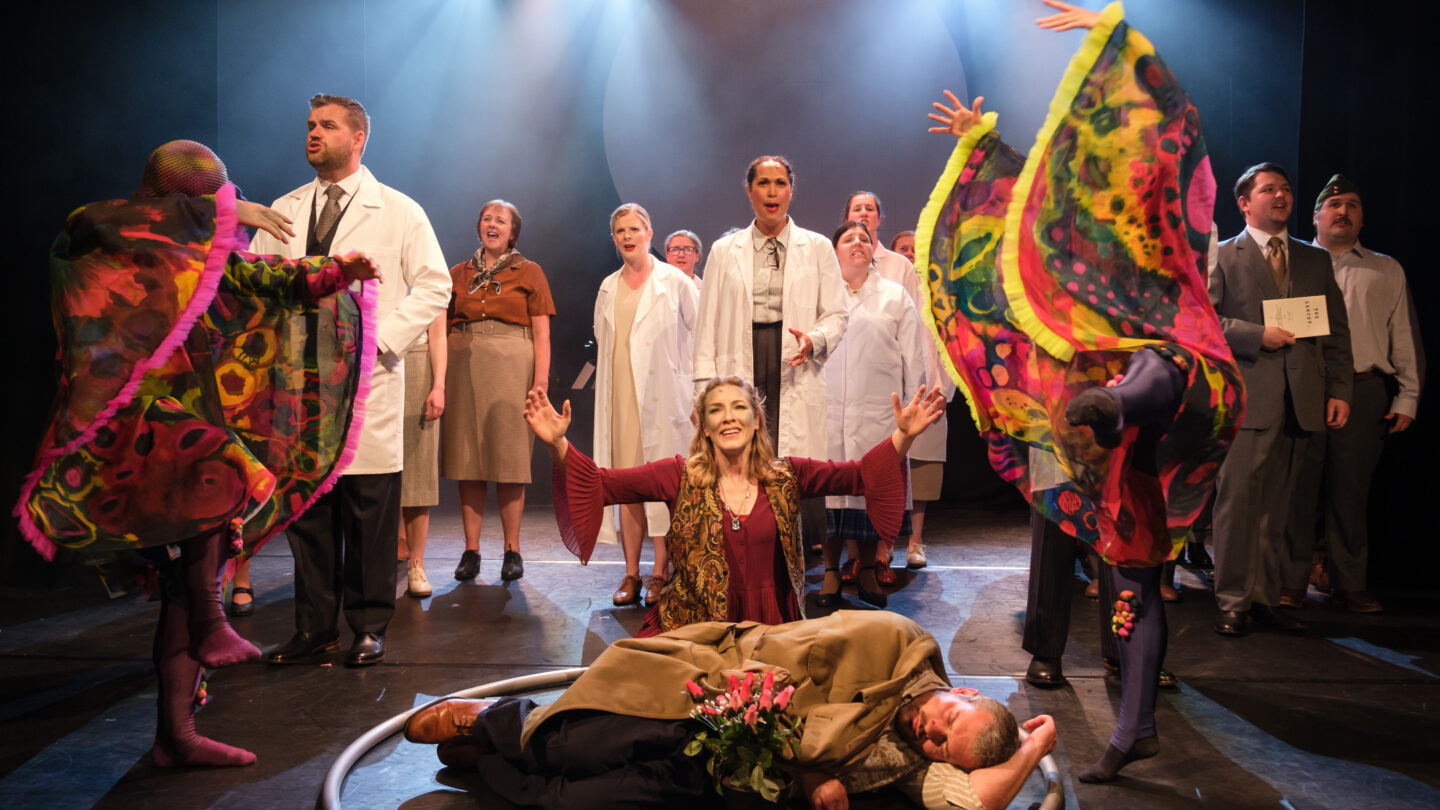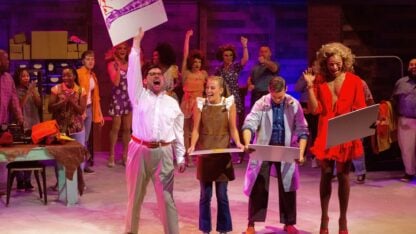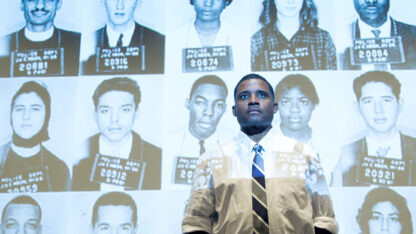Before the discovery and development of penicillin, many of today’s common diseases were deadly. The antibiotic advanced the course of history after it became available in the 1940s. Penicillin is the subject of the musical “The Mold that Changed the World,” which premiered at the Edinburgh Fringe Festival in 2018 and now will be performed in Atlanta, thanks in part to the CDC Foundation. Ahead of its opening Nov. 1 at Pullman Yards, co-creator, composer and director Robin Hiley joined “City Lights” host Lois Reitzes via Zoom along with Dr. Judy Monroe, president and CEO of the CDC Foundation, and Atlanta actor Robert Parr.
Interview highlights:
How the musical’s hero, Sir Alexander Fleming, discovered his magic mold:
“We tell the story of Fleming as a young volunteer in the London Scottish regiment of the British Army in the first World War first, but the story of his discovery goes that Fleming had been off on leave for a couple of weeks, and he gets back to his little lab at St. Mary’s Hospital in London … in the bacteriology department, where they fiddle around with petri dishes and microscopes and things like this. And now Fleming was a bit of a messy scientist, and he had left lots of these little petri dishes … out on his desk whilst he was away.”
“One of his friends, a chap called Merlin Price, dropped in to say ‘Hi’ to him, and as Fleming was sort of clearing up his bench and absentmindedly talking to Price, he noticed something unusual on one of these petri dishes, something that he didn’t expect to see. And Fleming, although being a bit of an untidy scientist, being a sort of real ‘boy scout’ as a result of all of his experiences in his earlier life, he noticed something unusual there and was able to put the two and two together, which ultimately quite a number of years later turned into penicillin. And yeah, this little piece of mold changed the world.”
On the mysterious Rose, a guiding voice for Fleming:
“In the theater, we have this wonderful opportunity to ask the audience to kind of suspend their disbelief to an extent. So we take them on a journey. And Rose is a character that Fleming speaks to throughout, who we don’t really like to say she is Mother Nature, but she kind of is an enigmatic Mother Nature who Fleming is speaking to in that moment between life and death, at the end of his life. And we use … Rose to speak to Fleming and ask him lots of different questions about his life and his discovery of penicillin and then his legacy. So yeah, the moment when your life flashes before your eyes, who do you meet? Well, for Fleming, he meets Rose.”
How a musical about mold can advance health awareness:
“CDC Foundation supports CDC, and one of the big challenges that we have in public health is antimicrobial resistance. In fact, it’s ranked by the World Health Organization as one of the top 10 global public health threats. A lot of people don’t realize that it is responsible for more deaths worldwide than HIV, AIDS and malaria,” said Monroe. “So the CDC Foundation, due to all of our work with CDC, got involved with the musical because we certainly see the value of the arts, the value that they play in communicating important public health messages, especially complex messages — being able to put it into an art form.”
“We need to restore trust in science and trust in the methods that we have available so that everyone accepts things like vaccines. Vaccines actually are one of the big defenses against antimicrobial resistance, because if you’re vaccinated, it prevents getting the infection, and therefore you wouldn’t need the antimicrobials or antivirals in the case of COVID-19,” Monroe explained. “That’s what we’re hoping for, is … helping people understand this complex issue, understand how life-threatening, and how it really impacts all of us.”
The musical “The Mold that Changed the World” opens Nov. 1 and continues through Nov. 6 at Pullman Yards, Building 12. Tickets and more information are available at https://feverup.com/m/119261.









